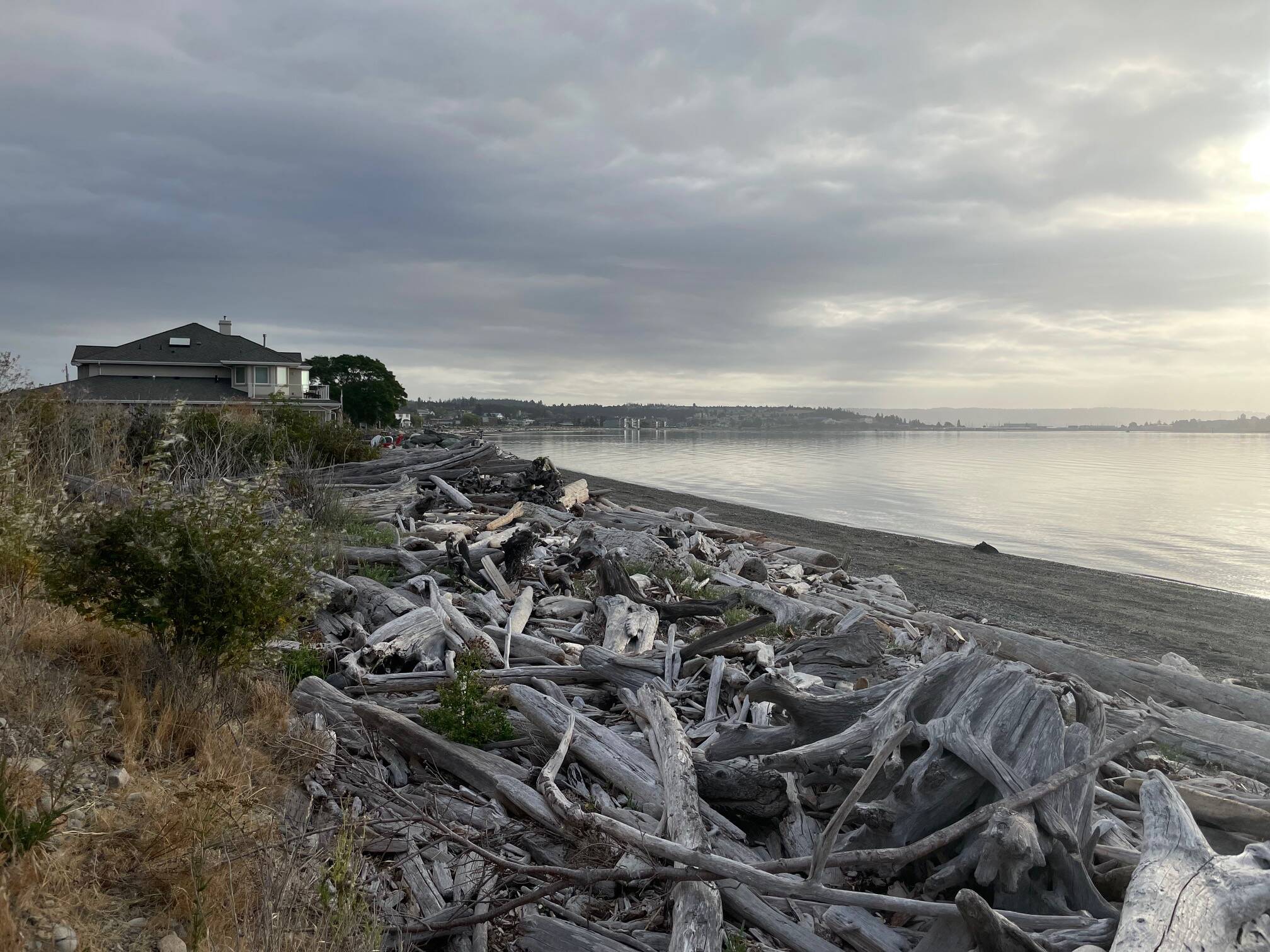Thanks to an Island County program that preserves wetlands, two projects providing public access are on track to be protected from future development.
During a meeting last week, county commissioners approved Conservation Futures Program funds for the acquisition of Freund Marsh in Oak Harbor and a wetlands preserve in Freeland.
At $582,490, the Freund Marsh acquisition is the pricier of the two applications submitted for Conservation Futures funding. It consists of three parcels, one of which is located on beachfront land adjacent to the marsh. The other two parcels are near Freund Marsh trail. The total area of the three parcels is just under four acres.
Officials from the city of Oak Harbor answered questions during the meeting about the project, which would establish wetland and estuarine marshland conservation and protection through a conservation easement, provide public access to the beachfront and increase green space within the city.
Oak Harbor City Administrator Blaine Oborn explained that the city is willing to provide $25,000 in matching funds for the acquisition. He said the beachfront parcel is significantly more expensive than the other two, at around $400,000.
Commissioner Jill Johnson asked for assurance that the two wetland parcels won’t be used for water retention related to development. Steve Schuller, Oak Harbor’s director of Public Works, said the two upland parcels don’t need to be part of any future retention plan.
Oborn said the city has a grant request for $300,000 to study Oak Harbor’s whole shoreline, which includes the possibility for salmon recovery near the site.
Johnson said she thought public access to the shoreline would be worth the conservation investment.
“I have struggles, actually, with Washington state having private ownership of the tidelands,” she said.
While the county allows a portion of Conservation Futures dollars to be used for maintenance on properties, Johnson suggested that the city of Oak Harbor assume the responsibility of taking care of the asset.
Commissioner Janet St. Clair expressed concern about taking logical parcels for housing density out of the inventory, and asked if the wetland parcels fell under this category. The current zoning is listed as “open space” or “low density residential.” Oborn said not really, and that there are a lot of other areas in the city that are much more desirable for development.
St. Clair asked about the risk of waiting until the next year to acquire the land, and Oborn responded that the property owner could decide to develop it.
The Freeland wetlands preserve acquisition, on the other hand, is $295,512. Nearly three acres, the land is split into two parcels and is currently maintained by Whidbey Watershed Stewards in order to provide trail and wetland access to the public, educational tours, invasive species control and restoration efforts. The nonprofit organization is hoping to own the property to preserve the land in perpetuity.
Both parcels are zoned as “business general” and are part of Freeland Municipal Urban Growth Area in unincorporated Island County. It is described as critical habitat for several species, including amphibians and migratory birds.
Candace Jordan from Whidbey Watershed Stewards explained that the Freeland wetlands preserve acquisition is located near Newman, Double Bluff and Scott roads. The Rotary Club of South Whidbey Island developed the parking lot off Newman Road, built the kiosk and added picnic tables and viewing benches to the preserve, which is 45 acres in total.
Though the preserve is designated by the state of Washington as a nature conservancy open to the public, access on the adjacent parcels the organization is looking to purchase is currently by permissive use. Jordan said there is a real sense of urgency to acquire the two parcels as they are now part of the MUGA, which is zoned non-residential mixed use, with primary uses including light manufacturing, office flex, mixed use and secondary uses including retail, multifamily, civic and institutional uses.
“If this property sells and is developed for such allowed uses, it will minimize the buffering protection to the wetland, which is also important to absorbing stormwater and recharging our aquifer,” Jordan said.
Johnson posed the same question to the Whidbey Watershed Stewards as she did to the city of Oak Harbor about taking care of the property without the use of further Conservation Futures dollars. Jordan said the organization has been maintaining the property since 2014.
For 2023, $585,000 in funding is available for Conservation Futures projects. An advisory board recommended funding the Freeland project, but not the Oak Harbor one.
Yet the commissioners ultimately decided to fund both projects, with the goal to secure the remaining funding for the more expensive application – Freund Marsh – in 2024. St. Clair expressed some hesitation about obligating funding into future years given an uncertain economic forecast, and initially said she would not vote for the funding option that Johnson and Bacon supported. But after reflecting more on the situation, she changed her mind, and it was a unanimous vote.



